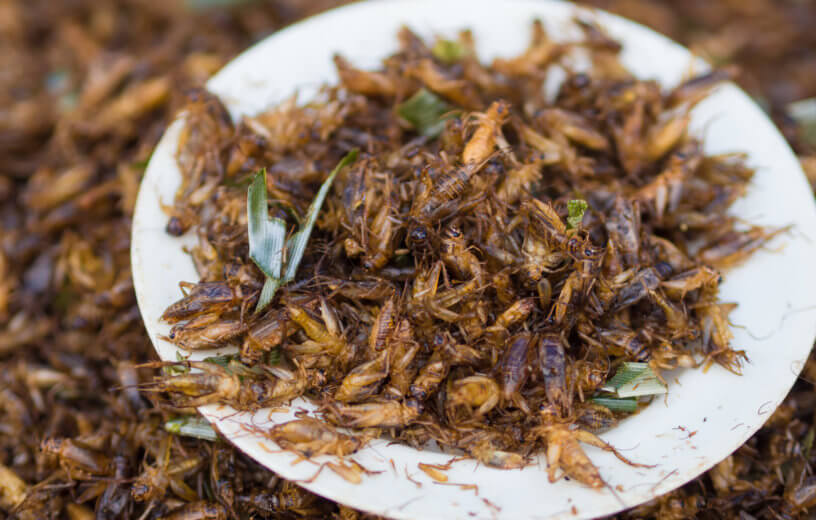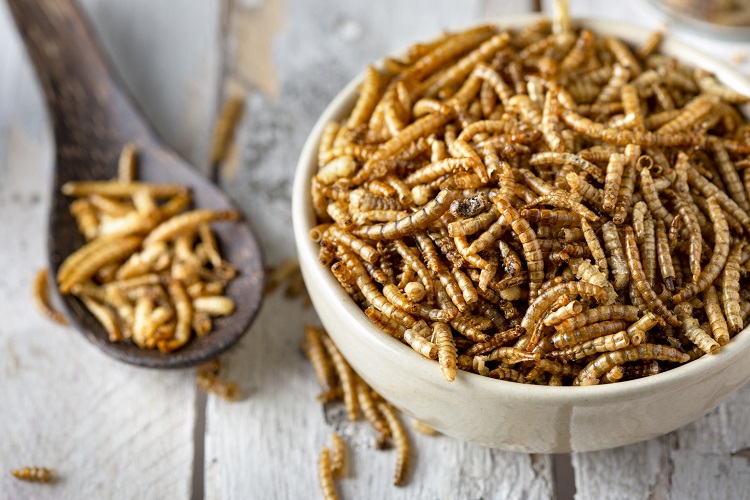Insects, with their crunchy shells and six-legged appearances, might not seem like the most appetizing meal option. However, a groundbreaking study from researchers at Washington University in St. Louis has shed light on a surprising revelation – eating insects benefits metabolism.

Eating Insects Benefits Metabolism: According to Recent Study (Photo: Study Finds)
Insects: A Historical Culinary Connection
According to the news featured by Science Alert, in September 15, 2023, when it comes to our diet, the idea of consuming insects may not immediately whet our appetites. However, groundbreaking research from Washington University in St. Louis reveals that eating insects benefits more than we might think. In a study exploring the consumption of chitin, a polysaccharide found in insect exoskeletons, crustacean shells, and fungi, scientists discovered that eating insects benefits a remarkable immune response in mammals.
This response not only aids in chitin digestion but also activates cells crucial for regulating fat tissues. In a world where metabolic health is a growing concern, this revelation of eating insects benefits could pave the way for novel dietary strategies. Before the age of dinosaurs, ancient mammals are believed to have relished insects as a significant part of their diet. This ancestral connection has endured, as many mammals, including some humans, still incorporate insects into their meals.
Beyond their historical significance, eating insects benefits offer a plethora of nutrients, such as protein, and can be sustainably harvested. Despite this potential, widespread acceptance of insects as a dietary staple may require some persuasion. Identifying which parts of insects are most nutritious and why could be the key to harnessing their full nutritional benefits.
READ ALSO: Man Arrested For Dragging Ardmore Police Department Officer By Car, Pleaded Guilty To Second-Degree Assault
A Promising Path Forward: Metabolic Insights from Mice
In a recent report released by Food Navigator, the study conducted at Washington University in St. Louis demonstrated that mice fed chitin alongside a high-fat diet exhibited improved metabolic readings compared to those on a high-fat diet alone. These findings of eating insects benefits mirror previous research indicating that chitin consumption promotes a healthy microbiome in the lower gastrointestinal tract. Delving deeper into the mechanisms, researchers disabled the ability of some mice to produce the AMCase enzyme necessary for chitin digestion.
Surprisingly, these mice displayed resistance to weight gain, even while consuming a high-fat diet simultaneously. This resistance was attributed to an increased level of type 2 innate lymphoid cells (ILC2), a product of the gut’s immune response triggered by chitin. The study’s eating insects benefits lead immunologist, Steven Van Dyken, believes that manipulating stomach chitinases could hold the key to enhancing the immune and metabolic advantages of chitin in our diets, potentially revolutionizing our approach to nutrition.
READ ALSO: New F-15EX Super Eagle II: Could This Fighter Jet Become The Most Heavily Armed In History?
























